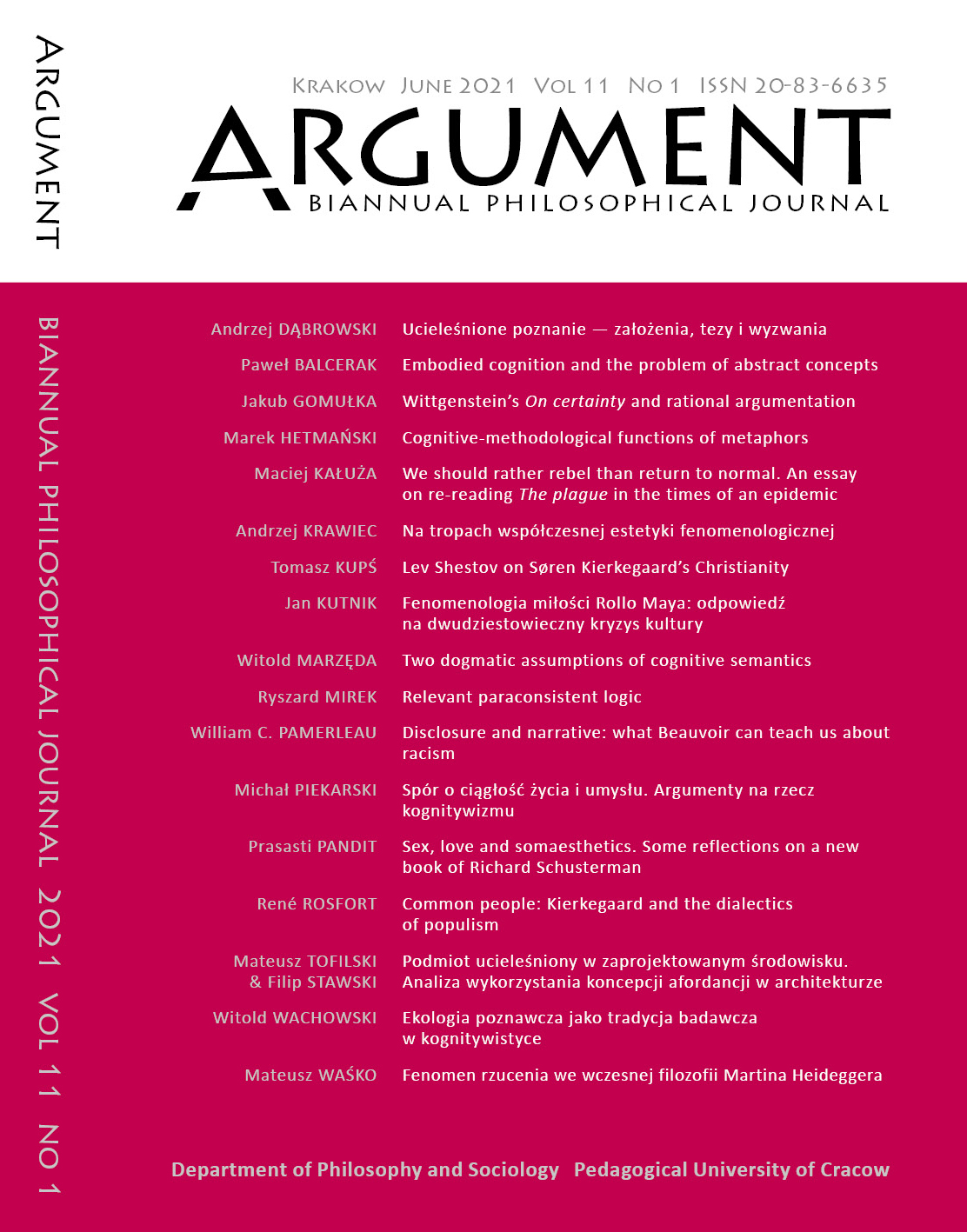Ucieleśnione poznanie — założenia, tezy i wyzwania
DOI:
https://doi.org/10.24917/20841043.11.1.1Słowa kluczowe:
cognitive science; embodiment; the 4E perspective; embodied cognition; embedded cognition; enacted cognition; extended cognitionAbstrakt
Embodied cognition: assumptions, theses and challenges: The paper aims at providing a concise presentation of the concept of embodied cognition that emerged in the cognitive sciences a few decades ago and has gained great popularity among empirically and philosophically informed researchers. The term “embodied cognition” is used by the author in two senses. The narrow sense implies that the body plays an important role in the process of cognition. In the broad sense “embodied cognition” is to characterize the general tendency within cognitive science which finds its articulation in the 4E perspective on cognition. The working hypothesis of the 4E perspective is that cognition depends on the characteristics of the agent’s body and its interaction with the physical and social environment. It emphasizes that cognition is: embodied, embedded, enacted, extended. After reconstructing the key concepts and basic assumptions the author offers a brief appraisal of the views under discussion. He claims that the characteristics of such a trend are incomplete and not homogeneity since the perspective encompasses at least a few related and partly overlapping views on cognition. The author concludes that “embodied cognition” serves as a label for a variety of research programs (or program designs) within cognitive science rather than a strictly defined and well-established research tradition or a new paradigm.


